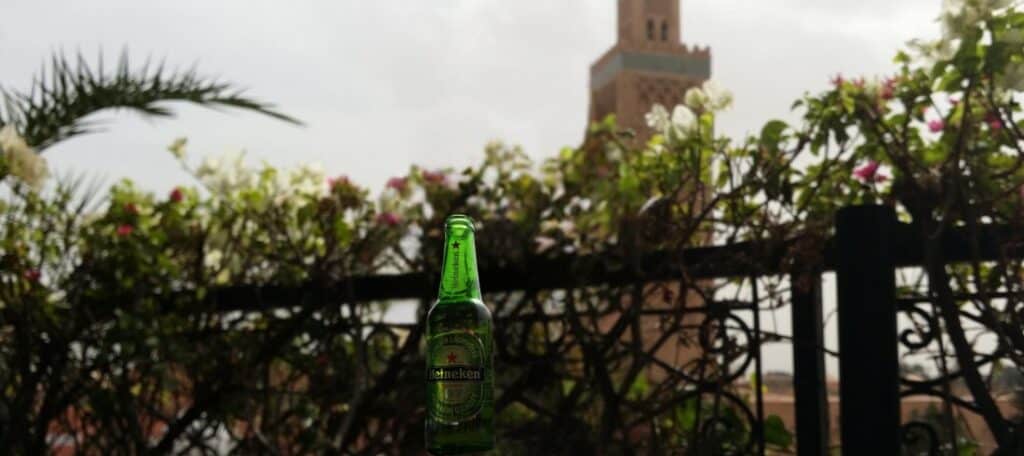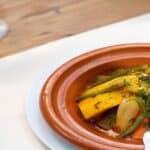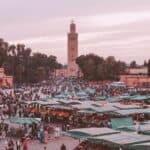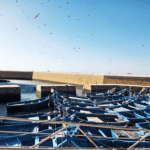
Morocco, a country with deserts and ancient cities, made a surprising 35 million bottles of wine last year. This shows a change in how we see alcohol in Morocco. It’s becoming known for tradition and growth. Although mainly Islamic laws restrict alcohol, there’s a rich alcohol culture in Morocco for everyone.
The rules in Morocco say alcohol is for special places only. Yet, with over 12,000 hectares of vineyards and companies like Celliers making 27 million bottles, we see a different story. They are aiming big, even planning to export to countries like China. Plus, no wine taxes until 2010 helped the industry grow.
Morocco is making a name in the wine world with care. It follows strict rules but keeps its traditions alive. This makes a unique alcohol scene for both locals and visitors. It’s about exploring and respecting Morocco’s special mix of old and new.
Laws and Regulations Surrounding Alcohol in Morocco
Understanding Moroccan alcohol laws can be tricky, especially for those visiting. It’s important for travelers to know about alcohol regulations in Morocco. This helps them enjoy the culture while following the rules. Alcoholic drinks don’t need Arabic labels. But, if alcohol content is over 1.2%, it must be clearly shown.
Morocco’s legal setup has specific rules. For example, wine must have at least 12% alcohol. Also, wines are placed into four categories.
Moroccan Alcohol Laws and Tourists: Navigating Legalities
To sell wines, businesses need a special license. This highlights Morocco’s strict control over alcohol sales. For those looking to try local wines or spirits, knowing about these licenses is key. They’re controlled by the Ministry of Agriculture.
The Impact of Islamic Teachings on Alcohol Policies
Islamic teachings on alcohol in Morocco shape its laws. Since Islam forbids alcohol, the laws reflect a mix of market needs and religious beliefs. This mix is very clear during Ramadan. Then, the focus is on fasting and reflection more than on selling alcohol.
Alcohol Availability During Ramadan and Religious Holidays
During Alcohol during Ramadan in Morocco, it’s tough to find. Many places stop selling to honor the month. Visitors should be sensitive to this and understand alcohol is harder to get.
Morocco respects industrial property rights, seen in its WIPO membership. Law 31/05 strengthens these rights. It upgrades Law 17/97, making property rules clearer.
Grasping Morocco’s complex laws is crucial for importers, exporters, and tourists. Following these laws means respecting the country’s ways. This is key for anyone visiting or doing business in Morocco.
Alcohol in Morocco: Discovering Local Beverages and Purchasing Options
Morocco, despite its Islamic culture, has a flourishing Moroccan alcoholic beverages scene. It offers wines and beers that highlight the nation’s unique flavors and traditions. The country produces almost 40 million bottles of wine each year but only drinks about 1 liter per person. This makes Moroccan wines a hidden gem in its agriculture.
The country has seven wine regions. These regions’ high altitudes, going up to 2,300 feet, give the wines a distinct taste. They mainly produce red wines but also have excellent whites and rosés. These wines are starting to get noticed by wine lovers around the world.
Moroccan beer is also popular in the local market. Brands like Casablanca Beer, Flag Special, and Stork highlight the country’s rich beverage choices. They mix tradition with modernity, similar to how Morocco blends fast food with traditional foods like Ma’quda. When it comes to buying alcohol in Morocco, one finds a mix of old and new. French-owned wineries and street vendors selling mint tea, known as atay, exist side by side.
Buying alcohol in Morocco means understanding the culture and laws. You can buy alcohol in licensed shops, select supermarkets, and certain stores in big cities. It’s important to respect the local traditions. Most wines are sold in standard 750 mL bottles and appeal to a wide range of customers. This includes wine experts and tourists wanting to try something new. The world’s interest in unique wines, like Prosecco, is reflected in Morocco too. This interest is growing for their local wines and Moroccan beer, adding to Morocco’s rich culinary world.









[…] landscapes: ancient cities, vast deserts, and scenic mountains. These varied terrains reflect Morocco’s rich culture and history. To understand Morocco fully, exploring its geography through maps is […]